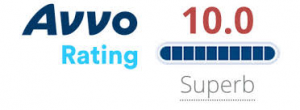
The Florida Bar’s Latest Social Media Guidelines
Social media has become a powerful and cost-effective marketing tool used by attorneys to enhance relationships with clients, gain referrals and ultimately obtain more cases. Recently, the Florida Bar’s Standing Committee on Advertising released an updated list of guidelines for attorneys relating to networking on social media sites such as Facebook, Twitter, LinkedIn and Google+.
These sites initially intended for “social” purposes have transformed into networking sites used for commercial purposes and attorneys are capitalizing on it! As social media continues to evolve, so do the opinions of the Florida Bar as to what constitutes appropriate networking on these sites. The Florida Bar’s guidelines often differ from site to site. For example, Twitter guidelines are a little different than Facebook guidelines.
The latest guidelines on Rule 4-7.2: Communications Concerning a Lawyer’s Services are as follows:
• Pages appearing on social networking sites that are used to promote the lawyer or law firm’s practice are subject to the lawyer advertising rules. Regulations include prohibitions against any misleading information, which include references to past results, promises of results and testimonials. Regulations also include prohibitions against statements characterizing the quality of legal services provided by the law firm. In contrast, personal pages attorneys use to maintain contact with relatives and close friends are not subject to the lawyer advertising rules.
• Invitations are prohibited from being sent out on social media sites to a third party to obtain legal business, unless the recipient is a former client, relative, another attorney or someone the attorney has a professional relationship with. These invitations refer to any form of instant messaging or direct e-mail on social media sites.
• Attorneys are held responsible for content they post on their own page, but not responsible for content posted by third parties, unless the post was prompted by the attorney. If content posted by a third party does not comply with the lawyer advertising rules, the attorney must remove the post. If the attorney is unable to do so, he or she must ask the third party to remove the post.
• On Twitter, posts can be restricted specifically to followers, in which case the followers are considered to have signed up to receive posts. If this is the case, the attorney’s Twitter posts are not subject to the lawyer advertising rules. The posts are then subject to the general misconduct regulations under Rules 4-7.1(i) and 4-8.4(c). This means the information remains subject to the general misconduct rule that prohibits any conduct involving fraud, deceit, dishonesty or misrepresentation. However, any communication an attorney uses in an effort to obtain followers is subject to lawyer advertising rules.
• Networking sites are similar to a firm’s website and therefore not required to be filed with the Florida Bar for review. In contrast, banner advertisements used on networking sites must be filed with the Florida Bar for review.
Additional information is available in the Handbook on Lawyer Advertising and Solicitation on the Florida Bar website at www.floridabar.org.
If you have any questions on this topic or would like to hear how the latest media, marketing and technology strategies can help grow your law firm, contact Kristine B. Snively at (954) 376-3683. Also serving Central Florida and surrounding areas at (407) 982-1707.
